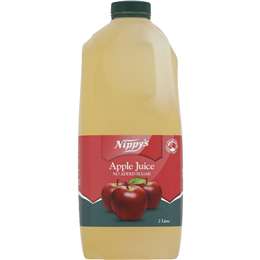

Depending on the original package of the apple juice, it could help to transfer the contents to a new container. The ideal storage temperature for apple juice is between 0 and 4 ☌. Once the juice package is opened, or if it was not sealed and shipped without needing refrigeration by the manufacturer, it must be resealed tightly and refrigerated to avoid contamination from microorganisms such as bacteria. The appearance, texture, or taste of the juice might change over time. Sealed bottles of canned apple juice can be stored in a dark, cool place, such as a pantry or cupboard, to delay the degradation of the product. “ Fresh apple juice requires refrigeration. Legal distinctions are not universal, and elusive to apply.Įlsewhere in the world, particularly in New Zealand, Australia and the United Kingdom, the simple term cider refers to fermented fruit juice, usually made from apples but also from pears this alcoholic beverage is known as hard cider in much of North America.Īpple cider tends to be a popular beverage in the winter, as it is easily able to be heated up and served similar to hot chocolate or coffee.” Seeking to capitalize on this, some makers of filtered and clarified juice (including carbonated varieties) label and sell their product as "apple cider". “ While apple juice generally refers to the filtered, pasteurised product of apple pressing, an unfiltered and sometimes unpasteurised version of the juice is commonly known as "apple cider" in the United States and parts of Canada.

Also like most fruit juice, apple juice contains a similar amount of sugar as the raw fruit, but lacks the fiber content.” This results in 130 calories per 230 g (8 ounces) – protein and fat are not significant. It has 28 g carbohydrates (24 g sugars) per 230 g (8 ounces). Research suggests that apple juice increases acetylcholine in the brain, possibly resulting in improved memory.ĭespite having some health benefits, apple juice is high in sugar. Apple juice has been shown to reduce oxidative stress on the brains of aging lab mice. Other vitamin concentrations are low, but apple juice does contain various mineral nutrients, including boron, which may promote healthy bones.Īpple juice has a significant concentration of natural phenols of low molecular weight (including chlorogenic acid, flavan-3-ols, and flavonols) and procyanidins. Vitamin C also helps to prevent oxidation of the product. “ Vitamin C is sometimes added by fortification, because content is variable, and much of that is lost in processing. Apple juice is one of the most common fruit juices in the world, with world production led by China, Poland, the United States, and Germany.”

In the United States, unfiltered fresh apple juice is made by smaller operations in areas of high apple production, in the form of unclarified apple cider. The resulting expelled juice may be further treated by enzymatic and centrifugal clarification to remove the starch and pectin, which holds fine particulate in suspension, and then pasteurized for packaging in glass, metal or aseptic processing system containers, or further treated by dehydration processes to a concentrate.ĭue to the complex and costly equipment required to extract and clarify juice from apples in large volume, apple juice is normally produced commercially. Since natural apple juice contains no additives, it is the best variety to choose.įrom Wikipedia: “ Apple juice is a fruit juice made by the maceration and pressing of an apple. It is also a cooking ingredient (e.g., in sauces). As a thirst-quencher, unsweetened apple juice should be enjoyed in moderation. Although it provides vitamins and minerals, it has a high sugar content (from the fruit itself) and contains a lot of calories. Unsweetened apple juice ( without added ascorbic acid) tastes sweet and fruity.


 0 kommentar(er)
0 kommentar(er)
